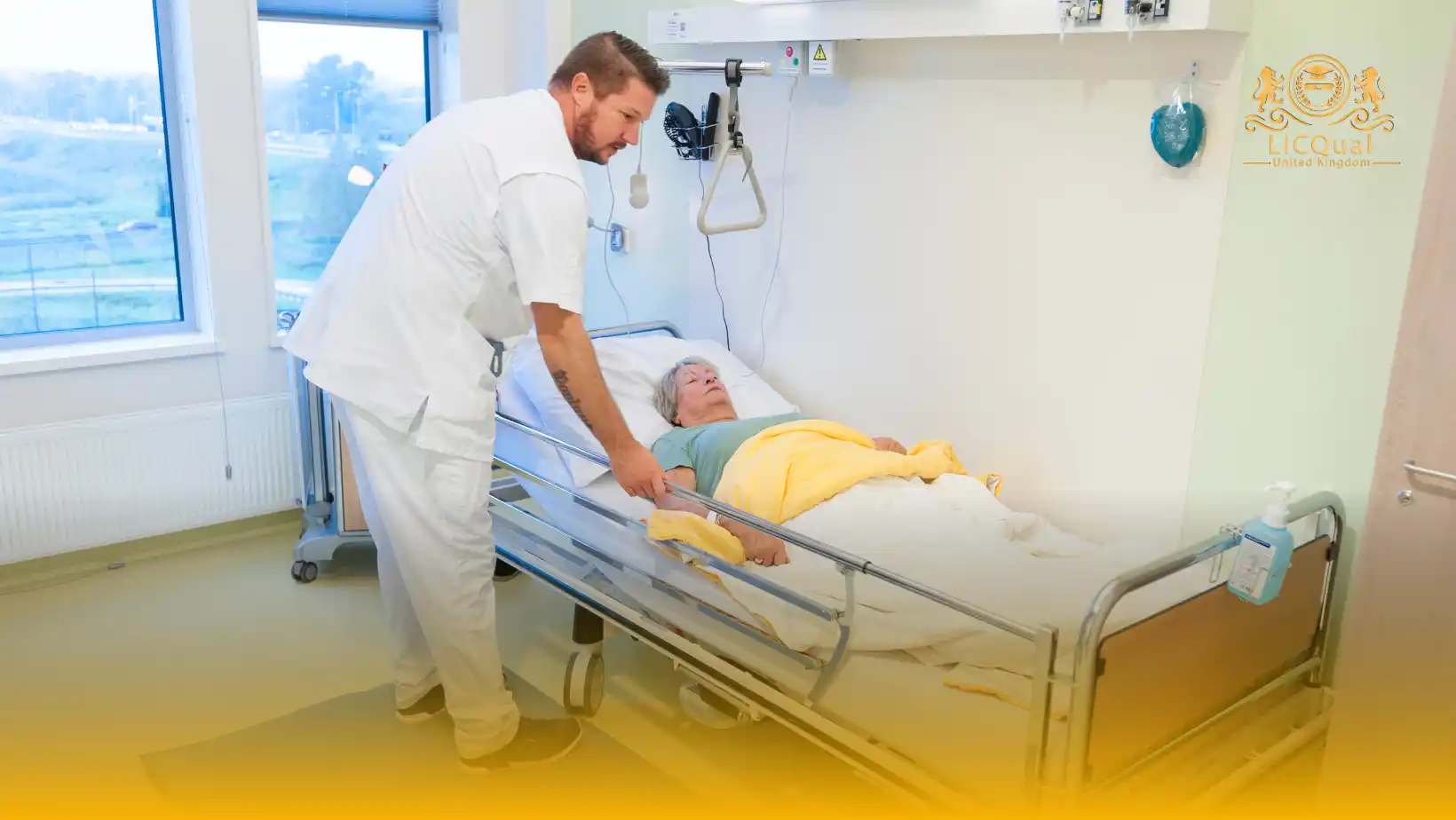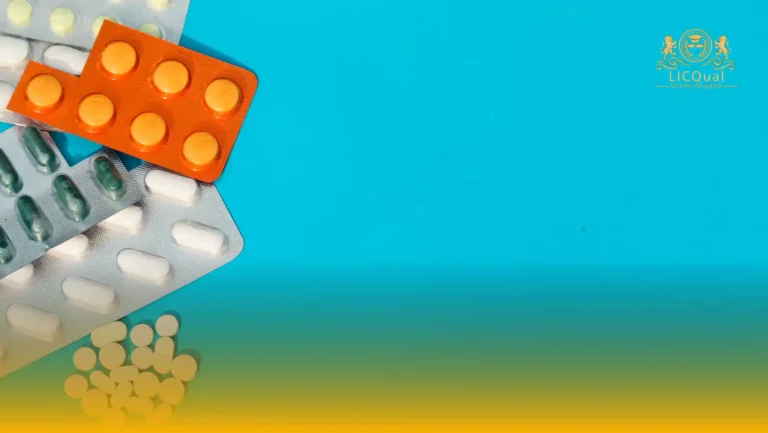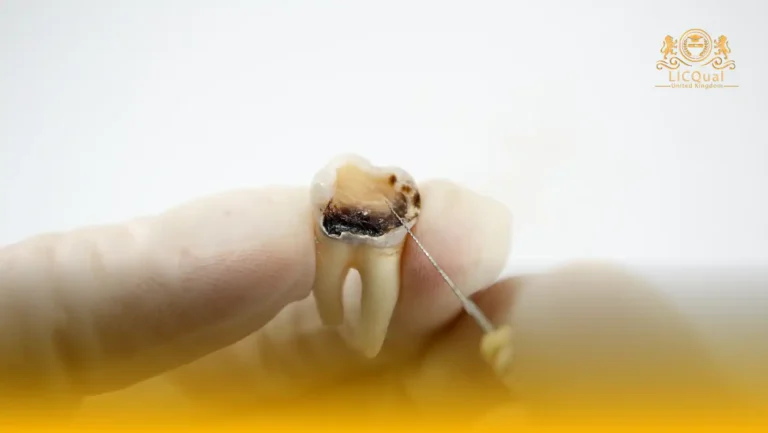The LICQual Level 7 Postgraduate Diploma in Geriatric Medicine (PgDGM) is a specialised qualification designed for experienced healthcare professionals seeking to advance their knowledge and expertise in the care of older adults. This programme is not intended for fresh candidates but targets learners with a clinical or medical background who wish to enhance their career prospects, broaden their knowledge base, and strengthen their Continuing Professional Development (CPD).
Geriatric medicine addresses the complex healthcare needs of an ageing population, including the management of chronic diseases, cognitive impairment, frailty, polypharmacy, and end-of-life care. This postgraduate diploma equips learners with advanced clinical knowledge, practical skills, and the ability to provide holistic, patient-centred care. Learners will gain expertise in assessment techniques, care planning, multidisciplinary collaboration, and evidence-based interventions tailored to older adults.
Centres delivering this qualification must ensure they have competent and highly qualified staff with expertise in geriatric medicine, alongside access to updated learning resources, clinical training environments, and digital platforms. This guarantees learners benefit from a structured, supportive, and high-quality learning experience that promotes both academic achievement and practical proficiency.
The PgDGM is internationally recognised and valued for its academic rigour and relevance to modern geriatric practice. Learners completing this qualification will be well positioned to take on senior clinical roles, contribute to research and education, and lead initiatives that improve the quality of care for older adults globally.
Course Overview
Qualification Title
LICQual Level 7 Postgraduate Diploma in Geriatric Medicine (PgDGM)
Total Units
6
Total Credits
120
GLH
600
Qualification #
LICQ2200975
Qualification Specification
To enroll in the LICQual Level 7 Postgraduate Diploma in Geriatric Medicine (PgDGM), applicants must meet the following criteria:
|
Qualification# |
Unit Title |
Credits |
GLH |
|---|---|---|---|
|
LICQ2200975-1 |
Principles of Geriatric Medicine |
20 |
100 |
|
LICQ2200975-2 |
Assessment and Diagnosis of Older Adults |
20 |
100 |
|
LICQ2200975-3 |
Management of Chronic and Complex Conditions |
20 |
100 |
|
LICQ2200975-4 |
Clinical Interventions and Therapeutics in Geriatrics |
20 |
100 |
|
LICQ2200975-5 |
Ethical, Legal, and Multidisciplinary Approaches |
20 |
100 |
|
LICQ2200975-6 |
Research Methods and Evidence-Based Practice in Urology |
20 |
100 |
By the end of this course, learners will be able to:
Unit 1: Principles of Geriatric Medicine
Learners will be able to:
- Critically evaluate the physiological, psychological, and social aspects of ageing.
- Analyse the epidemiology and prevalence of health issues in older adults.
- Apply advanced knowledge of ageing processes to clinical assessment and decision-making.
- Assess the impact of ageing on disease progression and patient outcomes.
Unit 2: Assessment and Diagnosis of Older Adults
Learners will be able to:
- Demonstrate advanced skills in comprehensive geriatric assessment and cognitive evaluation.
- Critically interpret functional, physical, and psychosocial assessments for older patients.
- Apply diagnostic tools to identify early signs of geriatric syndromes and complex conditions.
- Evaluate assessment strategies to inform care planning and intervention.
Unit 3: Management of Chronic and Complex Conditions
Learners will be able to:
- Critically analyse management strategies for chronic diseases and multimorbidity in older adults.
- Evaluate approaches to polypharmacy, frailty, and complex clinical scenarios.
- Apply evidence-based strategies to optimise patient outcomes.
- Assess the impact of interventions on quality of life and functional independence.
Unit 4: Clinical Interventions and Therapeutics in Geriatrics
Learners will be able to:
- Critically evaluate pharmacological and non-pharmacological interventions in geriatric care.
- Analyse advanced clinical procedures and therapeutic approaches.
- Apply patient-centred interventions to optimise safety and outcomes.
- Assess risks, benefits, and ethical considerations in therapeutic decision-making.
Unit 5: Ethical, Legal, and Multidisciplinary Approaches
Learners will be able to:
- Critically evaluate ethical and legal frameworks in geriatric practice.
- Apply principles of patient-centred care and multidisciplinary collaboration.
- Assess strategies to improve communication, decision-making, and care coordination.
- Integrate ethical, legal, and professional considerations into complex clinical scenarios.
Unit 6: Research Methods and Evidence-Based Practice in Geriatrics
Learners will be able to:
- Design and conduct research projects relevant to geriatric medicine.
- Critically appraise scientific literature and apply findings to clinical practice.
- Apply statistical and analytical methods to evaluate outcomes and inform evidence-based interventions.
- Demonstrate professional communication, reporting, and research dissemination skills.
The LICQual Level 7 Postgraduate Diploma in Geriatric Medicine (PgDGM) is designed for healthcare professionals at all stages of their careers. Whether you are an experienced doctor, a beginner entering the medical field, or a career changer seeking new opportunities, this internationally recognized postgraduate diploma equips you with advanced knowledge and practical skills in elderly care, chronic disease management, and patient-centered geriatric medicine. With UK accreditation and global recognition, the PgDGM is a flexible and credible pathway for anyone passionate about improving the lives of ageing populations.
1. Experienced Medical Professionals
- Doctors seeking advanced specialization in geriatric medicine and elderly care
- Healthcare leaders preparing for senior roles in hospitals and clinics
- Specialists aiming to strengthen diagnostic and patient management expertise
- Professionals looking to earn CPD credits and international recognition
- Practitioners wanting to expand authority in evidence-based geriatric care
2. Beginners Entering Healthcare and Geriatric Medicine
- Fresh graduates interested in postgraduate qualifications in elderly care
- Students aiming to build strong foundations in ageing and chronic disease management
- Learners seeking UK-accredited diplomas for global career opportunities
- Beginners who want structured, flexible learning with practical application
- Individuals motivated to gain advanced knowledge early in their careers
3. Career Changers Transitioning into Healthcare
- Professionals from other fields seeking a new career in geriatric medicine
- Individuals motivated to enter healthcare with internationally recognized qualifications
- Career changers looking for flexible postgraduate study options
- Learners seeking practical training in elderly care and patient management
- Those aiming to secure stable, rewarding roles in healthcare institutions
4. International Healthcare Practitioners
- Doctors and medical technologists outside the UK seeking accredited qualifications
- Professionals aiming to meet international healthcare standards
- Learners interested in globally recognized postgraduate diplomas
- Practitioners seeking career mobility across countries and institutions
- Healthcare workers wanting to enhance diagnostic accuracy worldwide
5. Academic Researchers and Educators
- Researchers focusing on advanced geriatric studies and elderly care
- Educators seeking postgraduate credentials to strengthen teaching authority
- Medical academics aiming to publish or contribute to geriatric medicine research
- Professionals interested in evidence-based curriculum development
- Scholars looking to align with EEAT principles in healthcare education
6. Hospital and Elderly Care Staff
- Nurses aiming to upgrade qualifications to postgraduate level
- Staff seeking advanced training in elderly care and chronic disease management
- Healthcare workers preparing for leadership roles in geriatric wards and clinics
- Professionals wanting to improve patient outcomes through accurate interventions
- Teams seeking internationally recognized CPD qualifications
7. Public Health and Community Care Specialists
- Public health professionals seeking advanced knowledge in geriatric medicine
- Specialists aiming to integrate elderly care into patient care strategies
- Healthcare workers focusing on dementia, frailty, and end-of-life care
- Practitioners looking to strengthen evidence-based healthcare delivery
- Professionals preparing for senior roles in public health institutions
Centres delivering the LICQual Level 7 Postgraduate Diploma in Geriatric Medicine (PgDGM) must adhere to rigorous academic and clinical standards to ensure high-quality training and learner success. Key requirements include:
- Qualified and Experienced Faculty
- Centres must employ trainers, lecturers, and assessors with advanced qualifications in geriatric medicine, internal medicine, or related healthcare disciplines.
- Staff must demonstrate substantial professional experience in clinical care of older adults and complex patient management.
- Clinical and Simulation Facilities
- Access to fully equipped geriatric clinics, wards, and simulation laboratories for practical training.
- Facilities must comply with health and safety regulations and support advanced clinical skill development.
- Up-to-Date Learning Resources
- Provision of current textbooks, journals, digital resources, and research databases relevant to geriatric medicine.
- Access to e-learning platforms and interactive materials to enhance learner engagement.
- Robust Quality Assurance
- Centres must maintain systems to monitor teaching quality, assessment integrity, and learner progress.
- Regular evaluation of course delivery ensures compliance with international Level 7 standards.
- Learner Support Services
- Academic guidance, mentoring, and career development support throughout the programme.
- Administrative assistance to ensure learners successfully complete their qualification.
- Commitment to CPD and Innovation
- Centres must encourage Continuing Professional Development (CPD) for both staff and learners.
- Course delivery should integrate the latest research, evidence-based practices, and innovations in geriatric medicine.
- Ethical and Professional Standards
- Centres must adhere to the highest ethical, academic, and professional standards in all aspects of programme delivery.
Assessment and Verification
All units within this qualification are subject to internal assessment by the approved centre and external verification by LICQual. The qualification follows a criterion-referenced assessment approach, ensuring that learners meet all specified learning outcomes.
To achieve a ‘Pass’ in any unit, learners must provide valid, sufficient, and authentic evidence demonstrating their attainment of all learning outcomes and compliance with the prescribed assessment criteria. The Assessor is responsible for evaluating the evidence and determining whether the learner has successfully met the required standards.
Assessors must maintain a clear and comprehensive audit trail, documenting the basis for their assessment decisions to ensure transparency, consistency, and compliance with quality assurance requirements.







